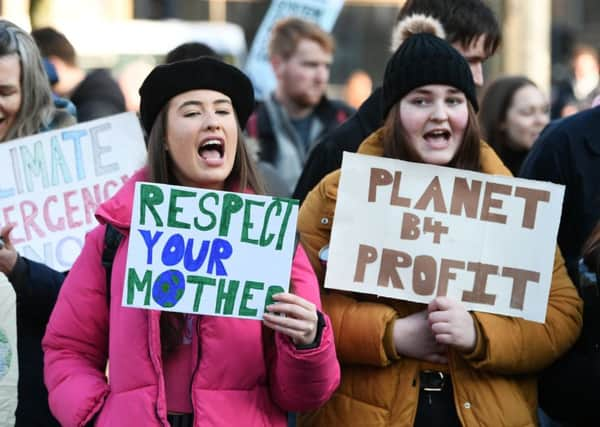Gail Wilson: Climate report card shows SNP isn’t listening


The committee, which took evidence from a range of experts, have called for “greater urgency and action across all parts of government, across the wider public and private sectors and by individuals, to deliver the transformational change needed”.
As it stands, the Scottish Government plans almost no increase to Scotland’s existing climate action between now and 2030. This is despite the stark warning from the UN’s climate panel in October last year that we must rapidly drive wholesale changes to our energy, transport and food systems if we are to limit dangerous global temperature rises.
Advertisement
Hide AdAdvertisement
Hide AdIn the past month or so we’ve seen spring come very early. Newspapers reported Scotland’s warmest February day on record, which brought sun-worshippers out in Aboyne in Aberdeenshire. People were walking around without jackets and my daughter has already eaten her first ice cream of the year.
We’ve enjoyed the early sunshine but it’s a worrying reminder that our seasons are changing. These extremes, from last year’s Beast from the East to beach holiday weather last month, are what climate scientists have long predicted and are made more likely by increasing global temperatures. The predictions for the longer term, here and around the world, if we don’t act are catastrophic.
Whilst Scotland as a country is financially and structurally able to cope with these extremes for the immediate future, many developing countries do not have similar levels of resources and infrastructure to respond. Some of the world’s poorest people, who are least responsible for the climate crisis, are the most vulnerable to impacts such as flooding and droughts.
People are connecting what is happening around them and the stark warnings from UN climate experts. I’ve been inspired in the past few months by the increasing numbers of people who are saying enough is enough, and are working hard to draw attention to this political and societal failure.
What’s been particularly motivating is the global movement of children and young people. School strikes have popped up around the world, including in Fort William, Edinburgh, Glasgow and Dunkeld. They are calling on those in power today to look at the future being passed on to them.
But while it is inspiring to see these young people standing up for climate action, I also find it extremely difficult that it has come to this. We have collectively failed when children feel they have to strike from their education to criticise our inaction.
There’s not only the threat posed by rising sea levels, increasingly extreme weather events and species extinction caused by rising global temperatures.
There’s also an injustice being stored up for future generations in the costs associated with dealing with climate change.
Advertisement
Hide AdAdvertisement
Hide AdThe parliamentary report last week recognised that “the cost of inaction and delayed action will be far greater” than the cost of cutting our emissions now.
MSPs from all parties must listen to growing public pressure and commit to reducing Scotland’s emissions more rapidly between now and 2030. Those giving evidence to the committee identified the positive climate policies that will also mean warmer homes, freedom to choose to cycle to work and support for our climate-friendly farming.
With a strong, bold and ambitious climate change law and action in these areas, maybe we could look to our collective future with more hope and optimism.
Gail Wilson is Campaigns Manager at Stop Climate Chaos Scotland. SCCS is the biggest civil society coalition in Scotland, bringing together organisations campaigning on climate change